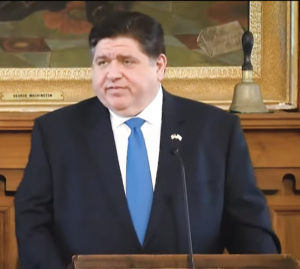Clashing goals of teachers, administrators causing exodus, former educator warns
Many teachers are leaving their profession not because of low salaries or barriers to hiring, but due to increasingly diverging missions between administrators and educators, argues a former…

Many teachers are leaving their profession not because of low salaries or barriers to hiring, but due to increasingly diverging missions between administrators and educators, argues a former public-school teacher.
“I wanted to teach; my administrators wanted to get the maximum number of students a diploma with the least amount of friction,” explains former Georgia teacher Jeremy Noonan.
Noonan says he chose a position as science teacher over “a high-paying job in engineering,” as he believed teaching “would give my life meaning and value that money couldn’t measure.”
Those ideals collided with bureaucratic concerns to graduate as many students as possible, he writes in a new article, “Why teachers are fleeing public schools,” for the firstthings.com journal of the nonprofit Institute on Religion and Public Life.
“Public schools have betrayed public trust by compromising academic and ethical standards to increase graduation rates, all while concealing from parents how little students are actually learning. These compromises not only affect academic achievement, but they also inculcate immoral habits in the next generation of citizens.”
‘Moral inversion’
Noonan highlighted three practices – “make-up work,” curving test scores and credit-recovery courses – as examples of growing conflict between teachers and administrators.
Make-up work allows students to miss deadlines until the end of the school semester, when they can finish assignments “at the last minute to avoid a failing grade,” Noonan writes.
“When I objected, stressing the importance of personal responsibility, the assistant principal replied, ‘Is it your job to teach chemistry or to teach responsibility?’”
Noonan described this kind of ultimatum as a “moral inversion,” a term by the Hungarian scientist-philosopher Michael Polanyi to explain how people often commit immoral actions in the name of morality.
“This tacit duty to the immoral means that teachers who exercise integrity by refusing to go along with these policies are perceived as the bad guys,” he writes.
Another practice mandated teachers to manipulate test grades to the point where a failing score of 49 could be converted to 70, or a C-. After Noonan refused to implement this practice, school administrators overrode him by curving the scores through his department chair.
“Never would an administrator acknowledge the bureaucratic purpose of these policies, which was to keep the wheels turning and money flowing.”
The third practice concerned online credit recovery, or OCR. Noonan took extensive steps to document the processes by which students were cheating on these tests, which allowed them to earn credit for courses they had failed.
“I found administrators were allowing OCR students to cheat on online exams to maintain over a 90 percent graduation rate,” he writes.
The cheating occurred through numerous methods, but the most common involved students’ copying and pasting questions into Google to find the answers, Noonan observed. Even after he showed his findings to numerous authorities on both state and federal levels, nothing changed.
“None acted, either because they lacked a legal mandate to do so or because they themselves were complicit,” he notes.
Student achievement declining
By overemphasizing graduation rates at the expense of student learning, U.S. public schools have set up most of its students to fail in future careers, according to Noonan.
“A failing student is a wrench in the system,” he writes. “He lowers the graduation rate, and the school looks bad. The bureaucracy rationalizes that the students will be better off with a diploma. But if they aren’t learning, their futures are being compromised.”
Noonan also points to statistical evidence where “indicators of actual student achievement have stagnated or declined, leaving only a minority of graduates prepared for college-level studies and the rest largely unprepared for anything else.”
These indicators include students’ proficiency in math and English, as well as college placement tests such as the SAT.
“The public school accountability system, by relying solely on quantitative metrics like graduation rates to gauge educational quality and to evaluate administrators, frustrates teachers’ ability to truly teach and care for their students and look out for their long-term well-being.”
This pattern is occurring in other states beyond Georgia. In one recent example of Kentucky high school students, fewer than half achieved reading (44%) and math (33%) proficiency standards.
Parents also are beginning to see this decline in student achievement when their families experience unusual circumstances such as a change in custody, or a school district switch to remote learning. For example, Katie Mathews in Missouri discovered her stepson Ryley was functionally illiterate when he joined their family during the 6th grade.
“When we first got custody of him, the longest book he said he’d read was about 13 pages,” Mathews said. “It was distressing. I felt terrible for him.”
Even though the family had moved into “an award-winning school district” for her children’s needs, Mathews found their academic performance suffered when they did their coursework virtually.
“I’m here doing all the work, and so much is on the computer, and they want to play video games afterwards,” she said.
Even though she had requested remedial classes for Ryley, the school refused after he scored two points above the cutoff range, according to Mathews.
“They said we could just let him do more work on the tablet, which they were doing a lot of at school, and the keyboard. I just didn’t agree with that because kids get so much video game time already and screen time, and I’m as guilty of that as the next mom. I try to limit it quite a bit.”
Mathews eventually withdrew her children to homeschool them.
Noonan had also taken a break from his educational career to homeschool his children. When he returned to teaching in 2021, he found “a moral environment that had further deteriorated.”
When six of his registered students failed to attend his OCR course for a week, he questioned their absence and found they were taking exams at home without supervision – further compounding Noonan’s concerns over cheating.
“I asked my principal about it, and he shrugged and muttered that everybody in the district does it,” he writes. “When I went over his head to the district leadership, they replied that ‘remote assessment is here to stay.’”
Until administrators are held accountable for their decisions, the public-school culture will remain fixed on short-term school ratings over students’ long-term welfare, according to Noonan.
“An accountability system that focuses only on measurable outcomes has produced a utilitarian, ‘anything goes’ approach to education. This system suppresses the kind of moral and philosophical discourse needed to correct the flawed ideas and immoral practices.”



